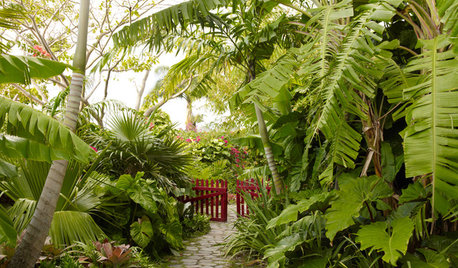Would the supreme court case have any effect?
bkay2000
11 years ago
Related Stories

MOST POPULAR12 Key Decorating Tips to Make Any Room Better
Get a great result even without an experienced touch by following these basic design guidelines
Full Story
KITCHEN DESIGN6 Elements of an Effective Kitchen Office
Create a successful mini workspace with these features in mind
Full Story
GREAT HOME PROJECTSWhat to Know About Adding a Backyard Bocce Ball Court
A regulation court in a relaxed setting helps you get the most from the Italian pastime. Here's what it takes to build one at home
Full Story
COLORFUL HOMESMondrian Inspires a Modern Addition
Primary colors and special glass are just the start of what makes this San Francisco home a case study in artistry
Full Story
GARDENING GUIDESGlorious Purple Blooms Bring a Crowning Touch to Gardens
Royally beautiful but mingling well with the masses, plants with purple flowers or foliage are worthy of homage in any garden
Full Story
LIFEThe Top 5 Ways to Save Water at Home
Get on the fast track to preserving a valuable resource and saving money too with these smart, effective strategies
Full Story
MOST POPULARMeet a Lawn Alternative That Works Wonders
Carex can replace turfgrass in any spot, is low maintenance and adjusts easily. Add its good looks and you’ve got a ground cover winner
Full Story
COLORPantone Unearths Emerald as Its 2013 Color of the Year
Whether you dig a natural version or go for one with polish, Pantone is predicting you'll treasure emerald green at home over the next year
Full Story
LANDSCAPE DESIGNWild Gardens Bring Excitement and Beauty to Landscapes
Forget what’s expected and ‘fashionable.’ Bold gardens teeming with site-appropriate plants make for a richer experience
Full Story
MATERIALSInsulation Basics: What to Know About Spray Foam
Learn what exactly spray foam is, the pros and cons of using it and why you shouldn’t mess around with installation
Full StoryMore Discussions




Steve Massachusetts
Jon 6a SE MA
Related Professionals
Birmingham Landscape Architects & Landscape Designers · Jackson Landscape Contractors · Biloxi Landscape Contractors · Medford Landscape Contractors · Roseville Landscape Contractors · Tamarac Landscape Contractors · Gages Lake Driveway Installation & Maintenance · Lake Forest Driveway Installation & Maintenance · Chatsworth Fence Contractors · Fort Lee Fence Contractors · Laguna Hills Fence Contractors · Lenexa Fence Contractors · Maryland City Fence Contractors · Tarpon Springs Solar Energy Systems · Wakefield Solar Energy Systemsctopher_mi
ken_adrian Adrian MI cold Z5
gogirlterri
Jon 6a SE MA
almosthooked zone5
Babka NorCal 9b
in ny zone5
irawon
Jon 6a SE MA
Jon 6a SE MA
bkay2000Original Author
irawon
Jon 6a SE MA
tsugajunkie z5 SE WI ♱
irawon
irawon
Jon 6a SE MA
tsugajunkie z5 SE WI ♱
hostaholic2 z 4, MN
Jon 6a SE MA
Jon 6a SE MA
in ny zone5
hostaholic2 z 4, MN
irawon
irawon
Jon 6a SE MA
in ny zone5
in ny zone5
tsugajunkie z5 SE WI ♱
irawon
Jon 6a SE MA
Jon 6a SE MA
irawon
tsugajunkie z5 SE WI ♱
Jon 6a SE MA
bkay2000Original Author
Babka NorCal 9b
almosthooked zone5